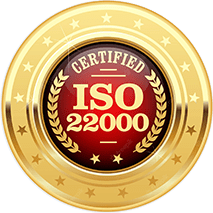To keep your health at its best and avoid problems, people with diabetes need to actively manage their condition. For people with diabetes to be able to regulate their illness, learning about and having access to resources is essential. The resources and assistance that are available to help people with diabetes better comprehend their illness, learn self-management techniques, and lead satisfying lives will be discussed in this blog article.
- Knowledge of diabetes is essential:
An essential component of managing diabetes is education. People can make wise judgments about their lifestyle, medications, and eating habits by educating themselves about the illness. People who are educated about diabetes can control their condition by monitoring their blood sugar levels, using insulin when necessary, and avoiding complications. It encourages them to live an active, healthy lifestyle.
- Awareness Facilities:
Learning about diabetes is one of the fundamental steps in diabetes education. Online resources, leaflets, and other educational materials can provide helpful information about managing diabetes. Numerous materials are available from groups like the American Diabetes Association (ADA) and the International Diabetes Federation (IDF), including manuals on maintaining a healthy weight, getting enough exercise, managing medications, checking blood sugar levels, and more. These resources are made to assist people in comprehending the fundamentals of diabetes, learning about available treatments, and creating workable methods to effectively manage their condition.
- Diabetes Teaching Programmes:
Diabetes education programs are created to give people the information and abilities they need to effectively manage their diabetes. These courses often include a wide range of issues, such as monitoring your blood glucose levels, medication management, healthy food, physical activity, and emotional well-being. They are typically provided by medical experts, such as certified diabetic educators (CDEs). Programs for diabetes education may be provided in a variety of settings, including group lectures, private consultations, and online courses. They offer a welcoming environment where people may communicate with peers and get knowledge from professionals.
- Tools and Technologies for Self-Monitoring:
Self-monitoring is a key component of diabetes self-management. People can properly monitor the levels of glucose in their blood using a variety of techniques and technologies. Insulin pumps, glucometers, and continuous glucose monitors (CGMs) are a few of the tools that help track blood glucose levels and change medicine as necessary. To better manage their diabetes, people can keep track of their meals, exercise, and medication intake with the aid of smartphone programs and wearable technology.
- Information for Nutrition and Diet Planning:
For people with diabetes, eating an appropriate diet is crucial. Online resources, mobile applications, and cookbooks made exclusively for diabetics provide food suggestions, portion control advice, and instructions on tracking carbohydrates. Registered dietitians with expertise in diabetes treatment can offer clients personalized guidance and assistance with controlling their dietary requirements.
- Exercise and sporting activity support:
By enhancing insulin sensitivity, preserving a healthy weight, and fostering general well-being, regular physical activity helps manage diabetes. People with diabetes can benefit from having access to resources and encouragement for regular exercise and physical activity. Guidance, tracking of progress, and inspiration are all provided by fitness apps, training videos, and exercise monitors. Additionally, individuals can participate in physical activities alongside other people who are aware of the particular difficulties in controlling diabetes by joining community-based fitness programs or exercise groups that focus specifically on that condition.
Social networks and emotional assistance:
People with diabetes need to take care of their emotional health just as much as their physical well-being. Diabetes can be difficult to manage in certain circumstances, which is why peer networks and emotional support are so important. Online discussion boards, communities of support, and social media networks link people with diabetes from all over the world, enabling them to exchange stories, seek counsel, and feel better understanding they are not isolated. To address the psychological implications of having diabetes, mental health specialists can provide counseling services. These practitioners might include psychologists or therapists who specialize in diabetes care.
Conclusion
The key to effectively controlling diabetes and preserving overall well-being is diabetes education and self-management. People with diabetes can acquire the information, abilities, and emotional support required to lead fulfilling lives by making use of the tools and support networks that are readily available. Online resources and applications offer practical tools for tracking progress and remaining informed, while diabetes education programs provide complete knowledge about managing diabetes.
Initiatives for diabetes support and education must continue to get funding from healthcare professionals, organizations, and policymakers. Remember, people with diabetes may manage their condition with the correct information and assistance.
 English
English 

































